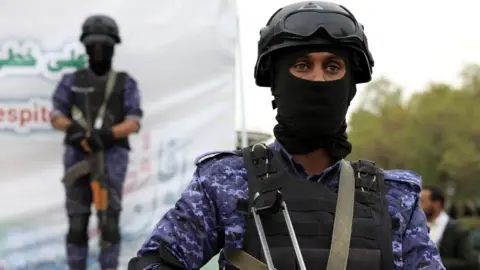In a significant shift in regulations, Syria's Islamist-led interim government has mandated that women wear burkinis or "decent" attire at public beaches and swimming facilities. This directive, issued by the tourism ministry, is framed as an effort to enhance public safety and preserve decency, as reported by the state news channel Al-Ikhbariyah al-Suriyah.
While private beaches and hotels rated four stars and above are exempt from these new rules, the government stated that all beachgoers at public venues must adhere to a dress code featuring "modest" swimwear, explicitly recommending burkinis or swimsuits that cover more of the body. Additionally, women are required to don a cover-up or loose clothing when moving between aquatic areas, and traveling in swimwear away from the beach without appropriate covering is deemed unacceptable.
The restrictions extend to men, who are expected to wear shirts outside of swimming areas and cannot be bare-chested in public spaces. While "normal Western swimwear" may be permitted at exempt locations, it is confined to standards of "public taste." The government’s guidelines also encourage patrons to opt for loose-fitting clothing that covers the shoulders and knees, advising against transparent or tightly-fitted garments.
Notably, the directive does not outline penalties for noncompliance or methods of enforcement. It comes with additional safety measures concerning beaches and pool management.
This regulatory announcement follows the recent political upheaval, where Islamist rebel forces led by Ahmed al-Sharaa ousted Bashar al-Assad's regime, concluding years of civil unrest. Since taking office, al-Sharaa has expressed intentions to govern inclusively, promoting women's education and rights. In a prior BBC interview, he reassured that he does not wish to emulate Afghanistan's oppressive policies towards women.
In March, he signed a constitutional declaration for a five-year transitional phase, reaffirming Islam as the presidential religion and setting Islamic jurisprudence as a primary legislative source, while also safeguarding women's rights and freedoms of expression and media.
While private beaches and hotels rated four stars and above are exempt from these new rules, the government stated that all beachgoers at public venues must adhere to a dress code featuring "modest" swimwear, explicitly recommending burkinis or swimsuits that cover more of the body. Additionally, women are required to don a cover-up or loose clothing when moving between aquatic areas, and traveling in swimwear away from the beach without appropriate covering is deemed unacceptable.
The restrictions extend to men, who are expected to wear shirts outside of swimming areas and cannot be bare-chested in public spaces. While "normal Western swimwear" may be permitted at exempt locations, it is confined to standards of "public taste." The government’s guidelines also encourage patrons to opt for loose-fitting clothing that covers the shoulders and knees, advising against transparent or tightly-fitted garments.
Notably, the directive does not outline penalties for noncompliance or methods of enforcement. It comes with additional safety measures concerning beaches and pool management.
This regulatory announcement follows the recent political upheaval, where Islamist rebel forces led by Ahmed al-Sharaa ousted Bashar al-Assad's regime, concluding years of civil unrest. Since taking office, al-Sharaa has expressed intentions to govern inclusively, promoting women's education and rights. In a prior BBC interview, he reassured that he does not wish to emulate Afghanistan's oppressive policies towards women.
In March, he signed a constitutional declaration for a five-year transitional phase, reaffirming Islam as the presidential religion and setting Islamic jurisprudence as a primary legislative source, while also safeguarding women's rights and freedoms of expression and media.
















